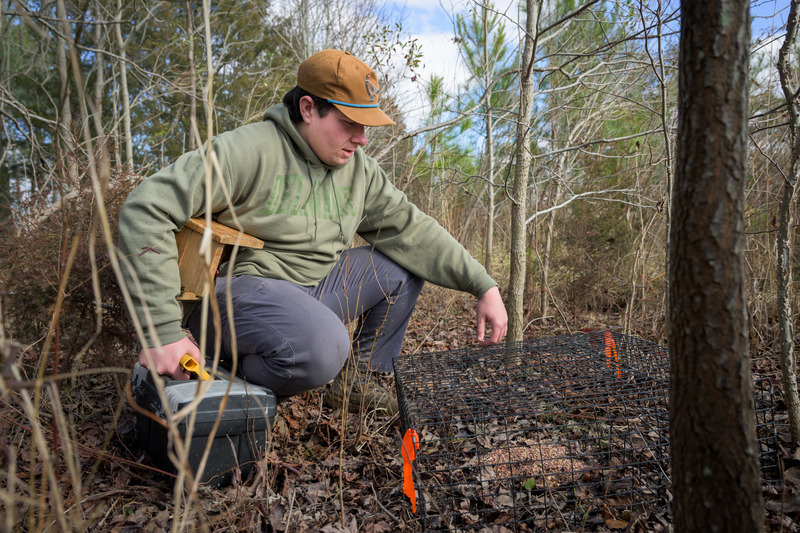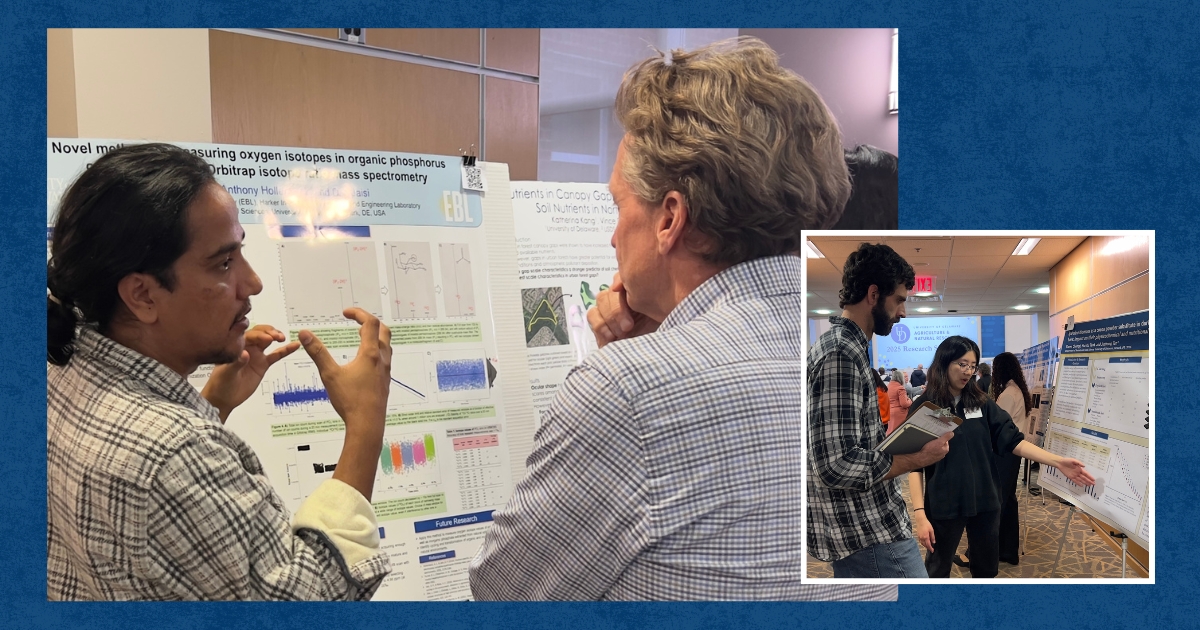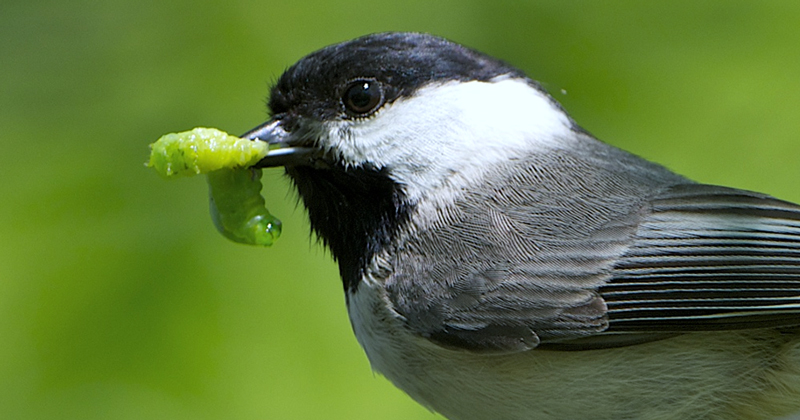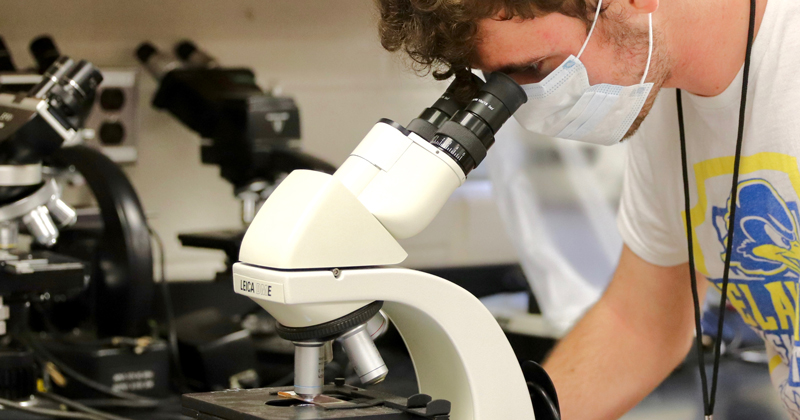
Wildlife Ecology Master of Science

Program overview
The department offers programs leading to the Master of Science (M.S.) in Wildlife Ecology. Graduate students in these fields couple a focus on insects or vertebrates with a broad knowledge of other related fields of biology, especially ecology. The M.S. degree programs prepare students for pursuit of the PhD. While it is possible to go directly to the Ph.D. program, the Department Faculty prefers that students complete the MS degree before being admitted or reclassified into the doctoral degree program in Entomology and Wildlife Ecology.
Students complete coursework in all aspects of wildlife ecology, conservation, physiology, taxonomy, policy, and human dimensions of wildlife. Students also conduct an intensive field research project (usually two to three field seasons) under the tutelage of a faculty member, which they use as their thesis.
Outcomes
Graduates are prepared to enter the workforce as wildlife biologists for state and federal agencies. Most of our M.S. students find employment in their field of interest.
Uniqueness
Our wildlife graduate research programs are diverse, ranging from aero ecology, waterfowl biology, tidal marsh ecology, forest fragmentation, ecological monitoring, and large mammal conservation and management, just to name a few. We provide strong support for our students and integrate their research into state, federal, and international agencies and non-government organizations (NGO’s). We are uniquely situated on an urban-rural gradient with research being conducted in human-dominated landscapes, agricultural landscapes, forested landscapes, and tidal marsh ecosystems.
-

Showcasing research across the College of Agriculture and Natural Resources at the 2025 student symposium
December 03, 2025 | Written by Katie Peikes | Photos by Katie Young -
Sticky situation
December 01, 2025 | Written by Katie Peikes | Photos by Kathy F. Atkinson | Photo illustration by Jeffrey C. Chase | Video by Max Dugan -
Radar data find no decline in insect numbers—but there’s a catch
November 18, 2025 | Written by Katherine Kornei | Science


